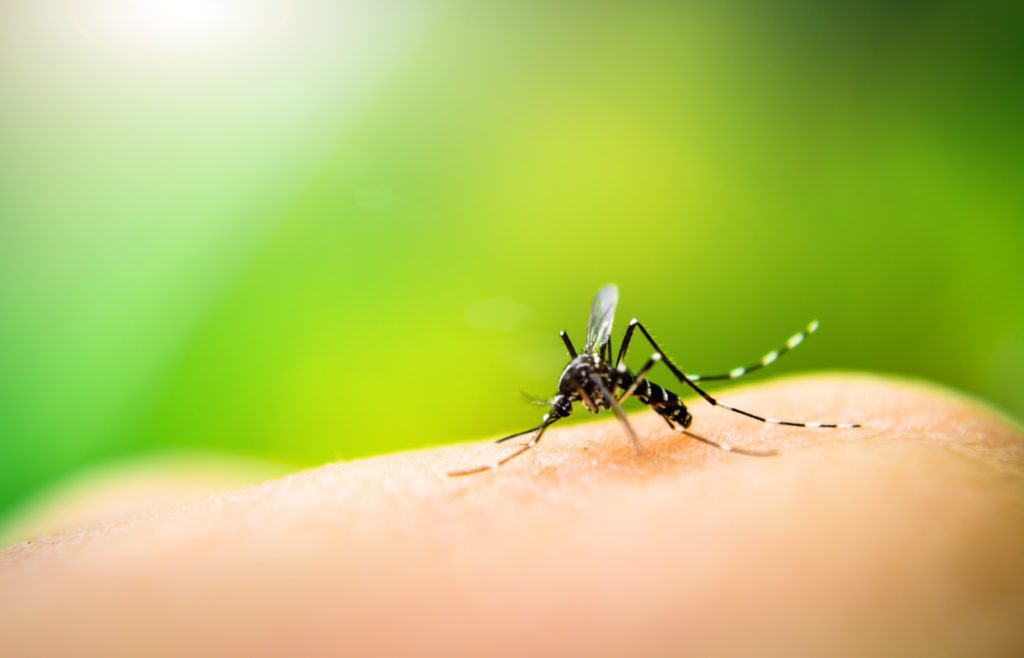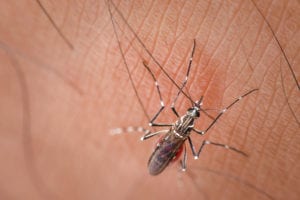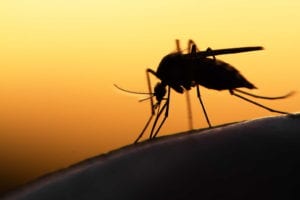What is the best Natural Mosquito Repellent?

Are you dealing with a mosquito problem?
When it comes to mosquitoes, the struggle is never-ending. Keeping them away long enough to enjoy yourself is hard. Worrying about putting chemicals on your skin is also an issue. Fortunately, you can purchase natural products or you can hire companies that use all-natural mosquito repellent.
GET QUOTES FROM PROSThe good news is that natural alternatives are pretty effective, rivaling and beating DEET options in price. Of course, that doesn’t mean that DEET doesn’t have its place, but it’s good to know the natural stuff works.
You can pick up natural mosquito repellent for day-to-day use with confidence. It’s perfect for when you aren’t dodging malaria while on vacation. That said, it’s worth knowing more about it.
It is vital to learn about what natural mosquito repellent is, how it’s made, and how to get the most out of it. Of course, comparing risks and benefits is also important. Read on for a comprehensive guide on natural mosquito repellents and why they’re the best.
Everyone Hates Mosquitos
In some parts of the world, mosquitos carry serious diseases around with them. These include the likes of malaria and the Zika virus. Dengue and yellow fever are also dangerous and spread in the same manner.
For most of the year, though, we forget they exist. Then summer rolls around, and it feels like no square inch of exposed skin is safe. It’s no exaggeration to say they can make or break your summer.

Now there are things you can do to minimize exposure to mosquitoes and keep them at bay. We’ll go into them in more detail, but as a quick run-down, they are:
- Staying away from water
- Covering up exposed skin
- Avoiding going outside during sunrise and sunset
- Paying to treat your yard with chemical insecticides or organic alternatives
- Getting an excellent natural mosquito repellent
You’ll notice right away that only two of those are relatively hassle-free. Let’s explore them all in more detail.
GET QUOTES FROM PROSThe Troublesome Options
We said there are ways to avoid or minimize exposure to mosquitos. While this is correct, it’s also pretty troublesome. No one wants to change their plans to accommodate a bunch of flying insects.
Staying away from water sounds easy enough until you realize water is everywhere. Mosquitoes can lay eggs if you have a pond or birdbath in your yard. In addition, puddles, mud, wet sand and grass, and a host of other areas can be prone to mosquitoes.
You could make mosquito-friendly zones if you water your yard with a sprinkler.
This means that you can’t avoid mosquitoes even if you avoid going to lakes, beaches, or other wet areas. The mosquitoes even wait in your own home. You can’t leave your windows open without a screen. Screens help to protect you.
The early morning and evening are also prime times for mosquitoes, which you can try to avoid. The thing is that it only reduces the numbers; it doesn’t eliminate them. Covering up does help protect you up to a point, but it’s a hassle, and they always find a way in.
Using treatments or good repellents is the better bet.
Treatments as Potential Alternatives
The better option for dealing with mosquitos is paying for mosquito treatments or mosquito repellent. The problem is those aren’t free. Treatments, in particular, can cost you a hefty sum.
Here’s how much treatment might cost, depending on your needs:
- $350-$500 per season for insecticides offering 21 days of protection for your yard
- $70-$100 per session for organic alternatives using essential oils
- $1,000-$1,800 to install a misting system
- Easily up to and over $2,000 depending on size and severity of treatment
Common insecticides like pyrethroid are effective but expensive. Many people find them unhealthy or unethical for various reasons. Organic alternatives can be cheaper and more effective, but only up to a point.

No matter which one you go with, you’ll usually need several sessions before summer is over. However, there’s also a glaring problem. You can’t take those effects with you on vacation or to the beach.
Therefore mosquito repellents are your best bet.
GET QUOTES FROM PROSNatural Mosquito Repellent
Mosquito repellent is pretty easy to carry with us. This makes it the best defense against mosquitoes, especially on the go. The only real problem is narrowing down your choices.
Now, based on the title of this article, we are making a case for natural mosquito repellents. First, however, we have to pay homage to the heavier stuff. Chemicals like DEET and picaridin work pretty well against mosquitoes and aren’t as dangerous as you’d think.
That said, there’s a time and a place for all tools. Natural mosquito repellents are effective, inexpensive, easy to find, and as safe as you can get. Fortunately, they don’t come with the environmental concerns of traditional options either.

You might opt for DEET if visiting a region where malaria or Zika is a real risk. For day-to-day life and going camping, go with something more natural. It will also work better for those with sensitive skin, making it great for children.
It’s worth pointing out that most well-known natural alternatives are pretty affordable. Most organic and DEET-free options go for $5-$10, with $15 being the next price jump. Like all things in life, you can go for something in the $20-$35 range if you have the budget.
The sub-$10 range should do the trick, making it competitive with most DEET options. Making it yourself is also an option, but the prices will vary. Read deeper into this natural mosquito repellent guide for more on that process.
What Is a Natural Mosquito Repellent?
So what is a natural mosquito repellent, exactly? A natural mosquito repellent is usually made with several ingredients to deter mosquitoes. These ingredients are all-natural and/or organic.
Here’s a quick list:
- Soybean oil
- Citronella oil
- Lemon-eucalyptus oil
- Lemongrass oil
- Tea tree oil
- Thyme oil
- Rosemary oil
- Lavender oil
- Neem oil
The vast majority of effective natural mosquito repellents contain some mixtures of the above list. A good number of them use olive oil as a base while still providing crazy high efficacy. A good example is lemongrass oil, where a solution of mixed lemongrass oil and olive offered was 98.8% effective for three whole hours.
20% rosemary oil is good enough for 8 hours of full protection. A mixture of citronella with soybean or olive oil can be as effective as DEET. How can this be?
The answer lies in the problem with anti-mosquito natural oils. This is because they evaporate too fast to offer more than around an hour of protection on their own. For example, citronella, which matches DEET, is gone in only 20 minutes.
Cutting them with olive or soybean oil slows this down. It makes the essential oils last longer, giving you more protection. Even 2-4% olive or soybean oil in the solution can extend efficacy to 4 hours.
Knowing How to Use Natural Mosquito Repellent
It’s also worth going over some natural mosquito repellent tips. It’s safer and healthier than chemical alternatives and can be as effective.
The key here is “can be.” You need to buy and use the right formulation and use it the right way. For example, you could buy citronella oil and put it right on your skin.
You’d enjoy the 100% efficacy for about 20 minutes, and then the mosquitoes would eat you alive again. Or you could play around with other oils, like olive, to prolong efficacy. The first step is doing lots of research.
There already exist plenty of natural mosquito repellent formulations and online recipes. Companies might guard their secrets, but the ingredients will still give you an idea. Look for combos that last several hours and are easy to source.
As mentioned already, lemongrass and olive oil work for 3-4 hours, while 20% rosemary is good for 8. You need to apply the oils in a solution designed to increase efficacy. You also need to remember to reapply as needed.
While some solutions might only be good for 2-3 hours, they aren’t that expensive. This makes them easy to reapply. Remember also that DEET in safe quantities also only lasts for 2-5 hours anyway.
This means that even at the low end, a good solution puts you in the running with heavier alternatives without the extra risks.
Risks to Watch Out For
There are a few risks to consider when learning to use natural mosquito repellent. You don’t cut essential oils with a lower oil like soybean or olive just because. It increases the efficacy, sure, but also the safety.
Many experts consider putting pure essential oils on your skin unsafe. Many people have sensitive skin, so strong essential oil extracts can cause breakouts, rashes, or general discomfort. This is why almost every essential oil you buy tends to come diluted in something called a “carrier oil.”
These carriers come in many forms, including:
- Almond oil
- Olive oil
- Soybean oil
- Coconut oil
- Jojoba oil
- Grapeseed oil
- Argan oil
The general rule of thumb is the golden 5-1 ratio. Five drops of your chosen essential oil for each ounce of carrier. The reason why olive and soybean are so often used in mosquito repellent is simple.
They’re pretty cheap and give the repellent lots of bang for the buck.
Make sure you research the carriers as well as the essential oils. Some people can have allergic reactions, so doing spot tests on a small patch of skin first is a good idea. If you don’t have any adverse skin reactions within 2 hours, you should be good to go.
It’s also always possible to buy a faulty or fraudulent product. Make sure to only go with ready-made products from reputable companies and sellers. If making your own natural mixtures, still make sure to source the oils from trustworthy places.
The Benefits of Natural Mosquito Repellent
There are many natural mosquito repellent benefits. For starters, you can feel good about being sustainable. However, heavier chemicals like DEET can wreak havoc on our ecosystems and planet.
With the right formulations, natural repellents are every bit as effective as chemicals. You won’t have to worry about the long-term impacts of using chemicals on your skin, either.
Repellents like DEET are officially safe when used the right way, according to the EPA. That said, there have been side effects known for some people. These include nausea and vomiting if it gets ingested and issues if it gets in your eyes.
DEET works well, but it isn’t always worth the risk. This is especially if you aren’t in a place with dangerous disease-carrying mosquitoes. With DEET, you also have to be careful to keep it away from your face, mouth, and hands.
You also have to wash it off as soon as you can to avoid swelling or skin irritation.
With natural repellents, you don’t have to worry about any of that. It all evaporates or gets absorbed in the skin without issues. As long as you aren’t allergic to a specific ingredient, they’re all safe when diluted.
Most important of all, natural alternatives work pretty well for day-to-day use.
Facts About the Best Natural Mosquito Repellent
The fact is that natural mosquito repellent is super effective and far safer than DEET. Chemical repellent and other anti-mosquito options have their place. Natural repellents are more affordable and versatile, making them somewhat better.
Many essential oils repel mosquitoes and can be game changers when used with other oils. You can save money, the planet, your skin, and your health all with one choice. For more tips and advice on pest-related topics, check us out at Pest Extinct or contact us today to learn more.
GET QUOTES FROM PROS
Leave a Reply